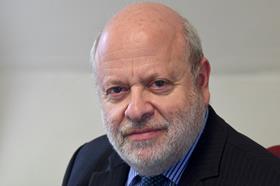The general election was on 4 July. The question now facing lawyers is: what if nothing is going to change for us post-election?

There has been much fuss in the press about the prime minister and others accepting freebies for football matches or concerts and money for clothing, reminiscent of the last government’s behaviour. That has nothing to do with lawyers, but sets the scene for a government of which expectations are sinking.
But there is lawyer content, too, adding to the hiss we hear of a country rapidly deflating of hope. For instance, only last week, we discovered that the Legal Aid Agency is inviting firms to bid for new 10-year criminal legal aid contracts. This comes before the Ministry of Justice has published either its consultation response on police station and youth court fees, or its revised decision on criminal legal aid fee levels following the High Court ruling in a challenge brought by the Law Society (which has been outstanding for many months). In words which could have been a copy-and-paste of criticism of the last government, the Law Society president had to repeat that there will probably be no firms left to do such work in 10 years unless the government invests in criminal legal aid.
A few days earlier, the knock-on effects of a shrinking pool of criminal legal aid lawyers were made clear in another part of the criminal justice system – the Crown Prosecution Service. It was reported that the CPS is struggling to retain staff, partly due to the dwindling pool of lawyers with criminal law experience. New recruits are therefore drawn from the ranks of former conveyancers or personal injury lawyers. They need to be trained, but leave after a couple of years because the job proves too tough. This was in the context of the strain that financial and administrative challenges are placing on CPS staff to prosecute rape and serious sexual offences, which the government has otherwise pledged to halve over the coming decade.

There are more such instances, though I have quoted only two. It seems as if we are back where we were before the general election: a justice system (both civil and criminal) which is crumbling fast, with backlogs, deteriorating court buildings and lawyer deserts.
But, as opposed to before the election when some hoped that a new government would provide regeneration, there is still little sign that there might be change. Indeed, all the political signals from the government – things are going to get worse before they get better, the budget at the end of October will be full of tough choices – indicate that change is a long way off. It is true that the tone at the Labour party conference suddenly veered towards the hopeful – no return to austerity, for instance – but we await this being translated into action.
Only three months have passed since the election and the new government should be given a chance. But the signals are such that I believe we should prepare ourselves to go back to what I thought was the right strategy for the last government – expect nothing, and look to find solutions ourselves.
Does it seem realistic, whatever the new mood music, to expect legal aid levels to be restored to a standard where such work will again become sufficiently remunerative that lawyers return to it? Does it seem realistic to expect sufficient resources to be poured into the system (judges, prosecutors, court buildings) so that backlogs will be sufficiently reduced?
The other claims on the public purse are overwhelming: defence, health, transport, infrastructure for growth, doubtless all a higher priority in the government’s mind than justice. The government is looking for savings because of an alleged black hole in the finances. Some pensioners are being deprived of their winter heating allowance as a result.
We need to face the future with realism. I think that means adopting a pre-election frame of mind. I wrote articles back then called: ‘Broken Britain – the lawyers’ story’ – would a properly and nationally directed pro bono scheme be able to help us?; and ‘Beyond the limbo’ – should we adopt the IOLTA (interest on lawyers’ trust accounts) schemes used in other common law countries, to direct interest on client accounts towards the public legal good?. The main impulse was to get us out of our ‘waiting-for-Godot’ syndrome, hoping that something would eventually come along to save us.
Of course, I support all the efforts made by the Law Society and others towards persuading the government to fund our legal system properly, to allow it to flourish. But if the signs are not positive (admittedly after only three months), I think we need to return to a context where we take the initiative in looking for schemes to save the legal system and ourselves.
Jonathan Goldsmith is Law Society Council member for EU & International, chair of the Law Society’s Policy & Regulatory Affairs Committee and a member of its board. All views expressed are personal and are not made in his capacity as a Law Society Council member, nor on behalf of the Law Society































2 Readers' comments